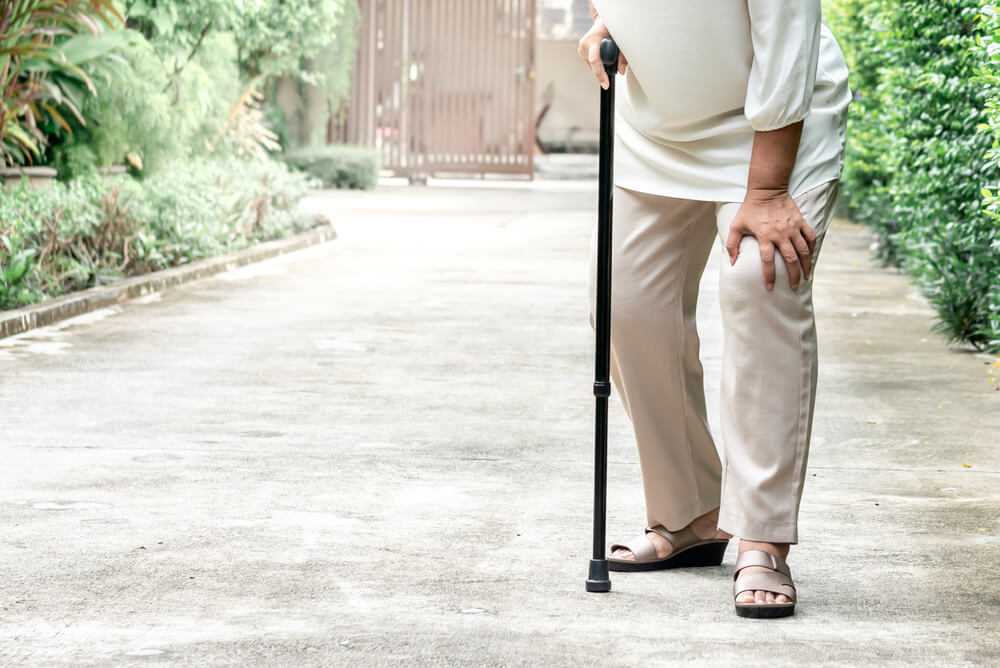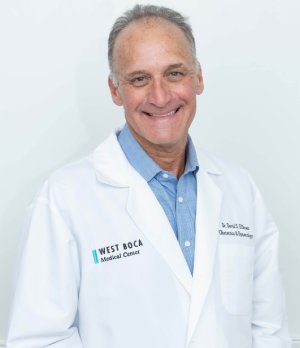Disclaimer: Please note that this blog is for educational purposes only, it includes general information on health-related topics. Women’s Healthcare of Boca Raton is giving medical advice to Patients Only. Follow this link to request an appointment with Dr. Ellman.
Osteoporosis is a disease that affects the bones in the body by weakening them and causing loss of bone density and strength. Healthy bones contain tiny spaces inside, and osteoporosis enlarges those spaces, thus making the bones weaker and more susceptible to fractures. The outer structure of the bones also tends to become thin and frail when someone suffers from this condition.
Effects of osteoporosis can be experienced by everyone, regardless of age or gender, but historically, the most affected were usually older adults, particularly women.
A person who struggles with this condition is highly prone to fractures, be it from intense activities or simple daily routines such as walking or standing. Bones in the body most affected by osteoporosis are hip bones, backbone (the spine), wrists, and ribs.
Many patients have already decided to trust Women’s Healthcare of Boca Raton in their fight against osteoporosis. When suffering from this condition, it is vital to get proper care and monitor the disease regularly, so pay close attention to the quality of services when choosing OBGYN services in Boca Raton, Florida. Make it a point to review all the potential options before selecting a medical professional for support.
What Causes Osteoporosis and What Are the Symptoms?

Different factors can cause the development of a condition such as osteoporosis; below, we have compiled a list that includes the most common risk factors:
- Anamnesis (family history) of osteoporosis
- History of hip fractures
- Insufficient intake of nutrients and a low body mass index (BMI)
- Taking medication for arthritis and asthma (which contains a high dosage of steroids)
- Age (due to lack of density, the older the person is, the more fragile the bones are)
- Gender (women are more prone to suffering from this condition)
- Lack of physical activity
- Tobacco and cigarette usage
- Menopause (a shift in hormone levels that affects the loss of bone density)
What causes osteoporosis is a question that has been researched a lot in the past, but it is important to note that some of these risk factors can be managed and controlled. Improvements in diet, exercise, tobacco consumption, and alike can elevate the overall quality of your life, especially if you suffer from a condition such as osteoporosis. Unfortunately, some factors, such as gender, age, family history, etc., cannot be influenced.
When it comes to the symptoms of osteoporosis, their manifestation depends on the phase the condition has reached. There are no signs or symptoms in the beginning stages of osteoporosis, so many people are unaware that they are suffering from this disease until a fracture occurs. When symptoms do appear, they can include:
- Weak nails
- Inability to have a firm grip
- Issues with gums (receding gums)
If you have osteoporosis in your family history, it is essential to monitor your health in this regard and consult a doctor regularly.
Osteoporosis Prevention
As mentioned, certain factors can be controlled to lessen the effects of osteoporosis, which include:
- Daily intake of vitamin D and calcium
- Regular physical activity, including walking, low-impact cardio, climbing, and alike
- Hormone regulation (in women especially)
- Quitting smoking
It is highly recommended to consult your chosen physician regarding prevention and care options when it comes to osteoporosis.
Types of Osteoporosis
There are different kinds and stages of osteoporosis; below, we have highlighted some of the most common ones:
- Senile osteoporosis: This type of osteoporosis is caused by aging, and if you do not take any prevention steps during your lifetime, you will likely have to deal with senile osteoporosis at some point.
- Severe osteoporosis: When a person disregards proper treatment for osteoporosis, the condition can significantly worsen and make the bones weaker and much thinner. The cause for most of these is a compression fracture, where the vertebrae are broken under the pressure of the spine. When recognizing severe osteoporosis, the indicators can be neck and back pains, fractures from the slightest movements such as sneezing, and a decrease in height.
- Osteopenia: It’s important to differentiate between osteopenia and osteoporosis; namely, osteopenia is not a disease but a condition with low bone density. Although the density is low, your bones are not as weakened as they are with osteoporosis. The leading cause of osteopenia is old age, which can lead to osteoporosis development, so take the necessary steps to protect your health.
Diagnosing Osteoporosis
When patients wish to check their health status and get a diagnosis, the doctors first have a conversation with them. They determine and review the patient’s medical history and family anamnesis. Afterward, a physical exam is done, and blood and urine tests are run to determine all the possible conditions causing bone weakening.
Suppose the tests and examinations show that there is a possibility that the patient has osteoporosis; a test called bone density test or bone densitometry is then suggested. This test utilizes X-rays to check for bone density in the hips, spine, and wrists. It is entirely painless, lasts up to 30 minutes, and helps diagnose osteoporosis.
Treatment for Osteoporosis

When your chosen medical professional has confirmed that you have osteoporosis, you will have the opportunity to work on a treatment plan with them. Firstly, medication will be prescribed to treat osteoporosis conventionally, but you will most certainly have to introduce significant changes in your lifestyle.
These can include small changes in habits such as taking vitamin D, minerals, protein, magnesium, zinc, and alike, but also some big changes in diet and exercise (including weight-bearing, resistance, and strength training).
Unfortunately, there is no official cure, but if you properly treat osteoporosis, you can manage the condition and protect your bone strength. Some treatments will aid in slowing down the deterioration of the bones, while others will support the development of new bone.
When it comes to official medication, the most popular choices doctors prescribe are bisphosphonates which are used to prevent bone mass loss and can be either injected or taken orally. There are other options for prevention and stimulation of bone development and growth, such as:
- Testosterone therapy in men
- Hormonal therapy for women, because the decrease in estrogen levels during menopause and afterward causes osteoporosis
- Different drugs have a variety of benefits when it comes to stopping bone loss and stimulating bone growth, such as Prolia, Forteo, Evista, etc.
- Natural medications like soy, red clover, black cohosh, horsetail, tai chi, acupuncture, and melatonin; it’s important to emphasize that there is no official proof that these remedies work for everyone, so consult your doctor before considering them
Before choosing any treatment option, please make sure you have consulted your elected doctor and created a plan adjusted to your particular needs.
Call Us!
Osteoporosis can be a complicated diagnosis, especially when at a later stage. Call us and schedule your consultation today! Our clinic has a specialized team of experts who will do their best to elevate the condition’s symptoms and make you feel as comfortable as possible.

Dr. Ellman is a Board Certified OBGYN who established his medical practice in South Florida over 25 years ago. His office, Women’s Healthcare of Boca Raton, is located in Boca Raton, Florida at West Boca Medical Center. Dr. Ellman attended Albert Einstein College of Medicine of Yeshiva University, where he received his medical degree. He went on to intern at Beth Israel Hospital in Boston- an affiliate of Harvard Medical School- and continued his residency at North Shore University Hospital in Manhasset, New York- an affiliate of Cornell Medical School.
Dr. Ellman has practiced Obstetrics and Gynecology in the Boca Raton area since 1995. In addition to treating patients at West Boca Hospital, Dr. Ellman also treats patients through his own private practice, Women’s Healthcare of Boca Raton, located on the West Boca Medical Campus.

